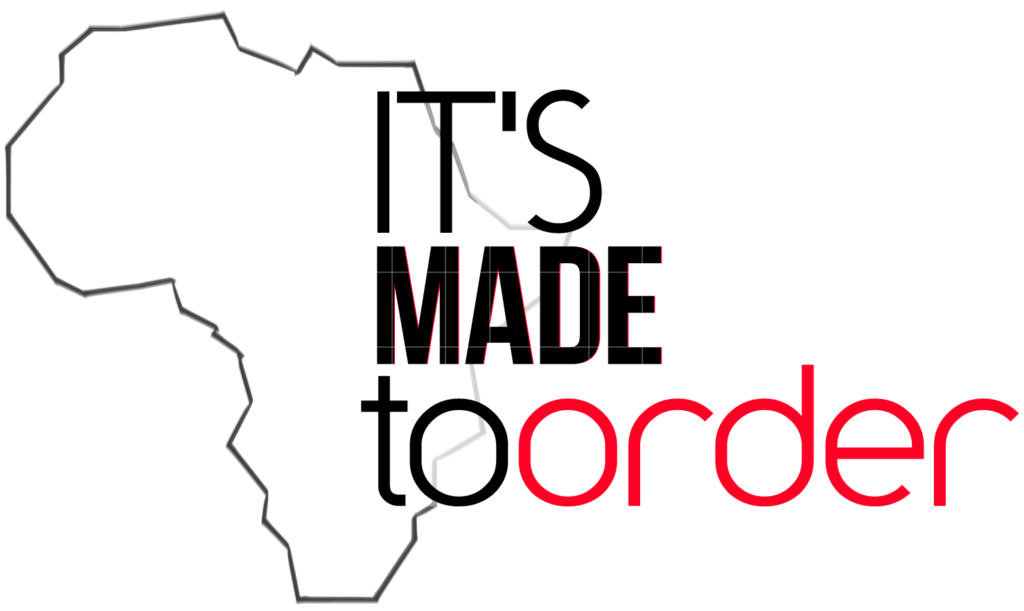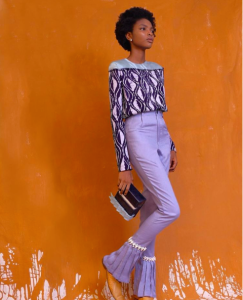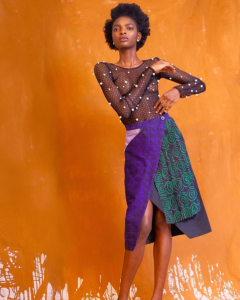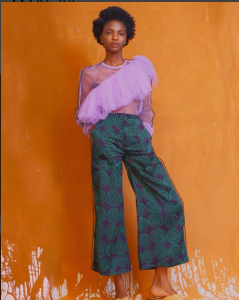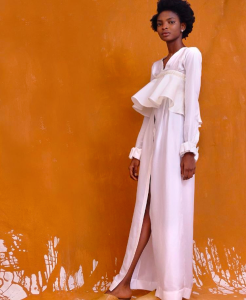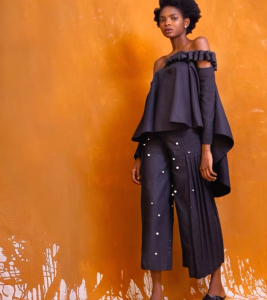Amaka Osakwe is never one to shy away from difficult subject matter, preferring instead to spin it into the rich, multilayered collections that have earned her a cultish fan base, and a place in the wardrobe of FLOTUS. For Fall, the designer posed the question: What does it mean to be a black woman? “[The collection] is quite dark, actually—as usual,” she laughed on a call from her native Nigeria. Mulling on that identity in all its nuance and power, as well as tropes like the angry black woman, Osakwe turned an introspective eye on the idea of silenced voices. “There’s really nothing I can do but be proud of who I am and just keep trying to make people see the beauty in me and my culture and all of what I stand for,” she offered. And beauty there was here, aplenty.
Maki Oh clothes have always been marked by a lush mix of fabrications, incorporating traditional Yoruban adire dyeing techniques. Here they came to life in a handful of prints, heady swirls, geometrics, and an abstracted eye print. That last one nodded to the idea of awareness, the eye motif recurring in several forms throughout the collection. It cropped up as black-and-white paillettes, dappled all over a royal purple midi dress and teddy bear separates, and as giant, patchworked, almost mod-looking shapes on an A-line, zipper-front number.
A lot of Osakwe’s ideas here served as hyper-feminized takes on traditional Nigerian women’s clothing. There was something particularly compelling in the idea of cloaking one’s canniness in seemingly nonthreatening, even ladylike, ways. Consider flounced, off-shoulder gowns, or layer upon layer of airy tulles. Still, it wasn’t all so delicate—tailoring in forest green velvet married masculinity and femininity to a stunning effect, while Osakwe’s pearl-studded camo prints spoke volumes, even dotted as they were with glossy little pearls. That same embellishment turned up as trim on a pair of adire trousers. Those dyed fabrics put Osakwe in mind of something else this season, too: the Nigerian word ehn. It’s roughly equivalent to “oh” in English, but can stand in for everything from “yes” to “I hear you” to “I hate you,” as Osakwe tells it; in just a few minutes she had generated a list of about 30 potential definitions. Like ehn, adire is fraught with nuances largely lost on the casual eye. Nuance aside: Osakwe’s message this season could hardly have been stronger—or lovelier.
Written by KRISTIN ANDERSON for Vogue.com
